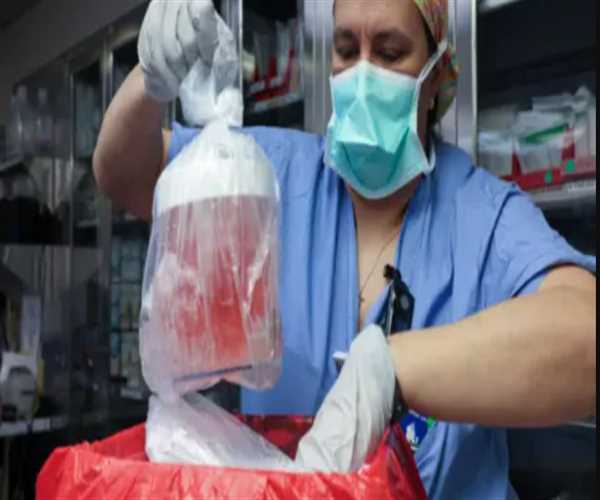
05-Apr-2024 , Updated on 4/6/2024 8:00:23 AM
First living patient having pig kidney transplant; Prediction of healthcare
A guy by the name of Rick Slayman just had a successful kidney transplant—not from a human donor, but from a genetically modified pig—in a medical first! This amazing achievement increases the possibility that organ shortages won't exist in the future. Let's explore this historic transplant's specifics and consider how it could transform healthcare.
Hope for Patients
A transplant provides a lifeline for a great number of patients with end-stage organ failure. But there is significantly more demand than there is supply for organs like kidneys. On lines to wait, patients can deal with years of increasing health and dialysis.
Slayman's case is a significant development. He had a kidney transplant from a genetically altered pig. Pigs are possible organ donors because of their physical resemblance to humans. But the human body usually rejects these organs.
The secret to this achievement is genetic engineering. To avoid rejection, scientists carefully changed a few selected genes in the pig's DNA. Slayman no longer needs dialysis since it seems like his body absorbs through the kidney.
Despite being just one case, this opens the door for greater clinical research. If this technique works, it has a chance to significantly increase the number of accessible organs, saving a great deal of lives.
Beyond Kidneys: A Glimpse into the Future
The success of this kidney transplant in a pig offers doors to an exciting future in organ transplantation:
More Organs, Less Waiting: Transplant waiting times may be greatly reduced if genetically engineered pigs provided an ongoing supply of organs. Patients wouldn't have had to put up with years of poor health due to dialysis.
Researchers are looking for ways to further alter pig organs so that they are completely compatible with the human body. This might deal with the need for complex tissue- and blood-type-based matching methods.
Xenotransplantation: With the success of transplanting pig kidneys, additional animal organs, like hearts or lungs, may be examined in the future, perhaps giving hope to many more patients.
Ethical Considerations and Challenges Ahead
Although the subject of xenotransplantation—or transplanting between species—seems to have a bright future, challenges still need to be cleared:
Ethics: The use of animals as organ donors creates legal issues for some individuals. It's critical to have open discussions about responsible procurement and animal welfare.
Long-Term impact: Additional studies are required in order to assess the long-term impact of pig organs on human health. Will they eventually function in the same way as human organs?
Possibility of Disease Transmission: Researchers must make sure that organ transplantation from pigs does not subject people to any unknown infections.
Beyond Organ Transplants: A Ripple Effect on Healthcare
The outcome of this kidney transplant from a pig might have impacts in other fields of medicine:
Personalized medicine may be made possible by the same technology that created genetic enhanced organs. Organs could be adjusted for each patient to improve compatibility and performance.
Drug Discovery: The capacity to use animal organs to study human physiology could speed up the search for new medicinal products and the creation of treatments for a variety of illnesses.
Regenerative Medicine: Studies on xenotransplantation could result in developments in the field of regenerative medicine, which has to do with the growth or repair of human organs.
A Turning Point in Medical History
The turning point in medical history came about with the successful transplant of a pig kidney into a human recipient. For the many patients waiting for life-saving organ transplants, this discovery provides a small ray of hope. Even if there are still challenges to overcome, xenotransplantation has a huge opportunity to transform healthcare and improve lives all across the world in the future. Heading into the future, the key to realizing the full potential of this technology will be open communication, moral issues, and ongoing research.

CONTENT WRITER
Writing is my thing. I enjoy crafting blog posts, articles, and marketing materials that connect with readers. I want to entertain and leave a mark with every piece I create. Teaching English complements my writing work. It helps me understand language better and reach diverse audiences. I love empowering others to communicate confidently.
Join Our Newsletter
Subscribe to our newsletter to receive emails about new views posts, releases and updates.
Copyright 2010 - 2026 MindStick Software Pvt. Ltd. All Rights Reserved Privacy Policy | Terms & Conditions | Cookie Policy